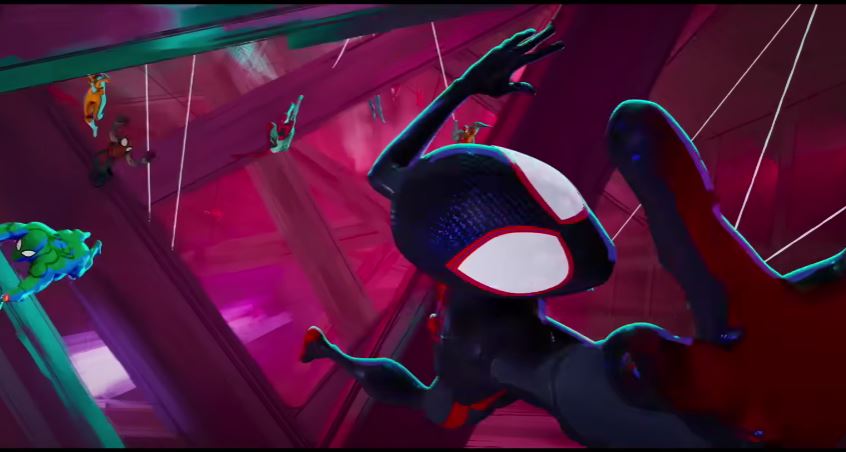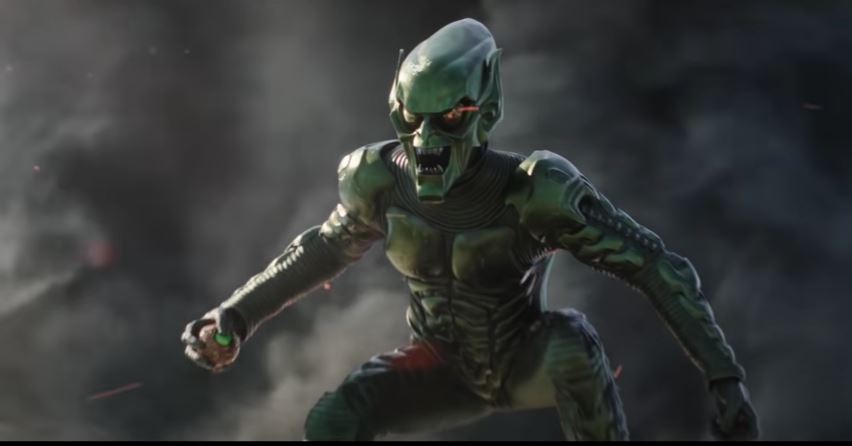Just over a month or so ago, Spider-Man: Across The Spider-Verse became the latest movie to jump onto the multiverse craze of recent years, one largely inspired by the success of the original Spider-Verse film. There’s nothing I can say here about the sequel that hasn’t been said many times over. Across the Spider-Verse is not just fantastic, it is possibly the best Spider-Man movie ever made. Any future multiverse movies, superhero ones especially, have a high standard to try and match moving forward.
What exactly makes Spider-Verse’s multiverse so good, though, especially compared to other, less impressive efforts? What are the lessons to take away from this one and others to make a good multiverse story? Let’s talk about it.

Character
I know this sounds obvious, because character is the key to almost every story ever told, but can be surprisingly left behind by other multiverse stories. The idea of infinite possibilities will often lead to expansive, ambitious scopes that try to do to much. When you start doing too much, character can be one of the first storytelling tenets left behind.
But really, what is one of the most exciting possibilities of a multiverse? It’s the chance to explore a character from every angle, in infinite timelines, where you can see everything a character has to show its audience.
For example, the movie Everything, Everywhere, All At Once uses its multiverse to show us the various ways that Evelyn and her family could have turned out if they made different decisions in life, or lived in entirely different universes altogether, and yet still struggle with the same issues. As a result, we see those characters from pretty much every possible light. We know that no matter how struggling or successful Evelyn is, she felt a similar emptiness. We know that Waymond’s love for her exists even in realities where spent disconnected from each other that provided wealth and fame they never found together. We can understand them in a detail and vividness a multiverse makes possible.
Across the Spider-Verse most certainly gives Miles Morales a rich, interesting character arc, one that uses the flood of different Spideys to show us why Miles, specifically, stands out. He is an interesting character on his own, but the use of the multiverse highlights the specific things about Miles that make him a standout Spider-Man among all the others. Gwen’s struggles to break from the conformity of the others in order to do right by Miles is just as compelling.
Using a multiverse, and endless similarities of the Spider-Man character, to show us why specific main characters are special, is probably the best thing about that movie. Which says so much about a movie filled with highlights and things to love. I love Gwen and Miles so much more for seeing them thrust among all these other Spideys who want them to conform to the Spidey norm.
The Marvel Cinematic Universe made good use of a multiverse with Spider-Man: No Way Home, where the villains taking center stage. While certainly not as elaborate or diverse as what Spider-Verse does, the movie uses a multiverse to drag all of Spidey’s numerous sympathetic villains together and ask both them and the audience if they are capable of being better. It is an interesting question to ask, and while maybe No Way Home could have done more with it, I appreciate that they at least asked the question.
While not quite a multiverse movie the way these are, a big reason why Ant-Man Quantumania was so disappointing is because it was the first real introduction to the MCU’s new multiverse-spanning Big Bad for Phase 5, and yet did nothing with the multiverse. Damn near every character in the movie suffers for the lack of attention you hope for, and instead you get a jumbled mess of half-formed ideas that never come together, and character arcs that in one infamous instance boils down to one character literally telling another to stop being a dick.
If a story is going to bother with a concept that inherently involves multiple versions of at least one character, the least they can do is make sure they really delve into said character in a meaningful way.

Creativity
You have a multiverse, a situation where an infinite number of possibilities are possible. Use it! Get weird with it! Show us every silly, ridiculous thing that comes to mind!
The Spider-Verse movies clearly took this to heart as a core concept. It’s not just the celebrated animation style that gets creative. We get so many versions of Spider-Man, in so many forms, and with their own distinct visual styles. This applies to the comics the Spider-Verse movies take inspiration from as well, which shows its heroes traverse from a steampunk, 1800s Lady Spider reality to old-school 1960s Spidey comics, complete with clashing visual and dialogue styles.
Everything, Everywhere, All At Once is maybe the best multiverse movie ever made because it also takes creativity to heart. Would the movie be good if we simply got the many realistic realities in which Evelyn in her family exist? Yeah, but that wouldn’t be nearly as memorable without Evelyn and Joy as boulders during one of the movie’s climactic conversations, or a reality where Evelyn and Deirdre have hot dog fingers and are lovers. I wouldn’t love the movie nearly as much without time assassins jumping on to makeshift butt plugs in order to unlock the combined powers of all their possible selves.
While you don’t have to go as strange as all that to exercise the creativity of a multiverse, you should still do more than minor differences featuring similar characters. A writer should always use this premise to explore the limits of what their characters want from life, and what they fear.
As much as I enjoyed Multiverse of Madness, it’s a great example of a movie that simply does not do enough with the concept of a multiverse. Seeing the Illuminati was cool, as was the use of Zombie Strange, but why not show us more? Why not show us more realities where Wanda and her children exist, or more examples of the person she could have been without them, or the Avengers, or whatever other potential lives come to mind? Why not show us more possible Dr. Stranges, and more examples of how a different Strange impacts the MCU as we know it?
To go back to Quantumania, one of the more disappointing scenes is the one where the different Ant-Men all come together to go after Kang’s power core. When you have hundreds of different Scott Langs on screen and the most unique one is the one where Scott didn’t quit his job at Baskin-Robbins, well, that’s kind of disappointing. Don’t even get me started on how uninteresting the Quantum Realm is to look at.
A multiverse just isn’t worth bothering with if you won’t exercise the full creativity of endless parallel realities. Give me your anime and pig Spider-Men or don’t bother at all.

Have A Good Reason For A Multiverse!
In many ways, this ties up everything I’ve said so far. Just like with any setting, your story needs a good reason to exist within a multiverse. It is no different from A Song of Ice and Fire needing a medieval setting to explore its themes of power and patriarchy, or The Americans using the Cold War to explore marriage.
A multiverse is a powerful storytelling tool with specific strengths in how you can use its possibilities to explore every facet of a person, a city, an event, etc., in ways that are not possible without a multiverse.
Across the Spider-Verse is very much about Miles, but the movie also reaches for a more ambitious examination of the entire concept of Spider-Man. Does Spidey need to be the tragic, down on their luck loser that most iterations of the character are pushed to be? Do they always need an Uncle Ben or Captain Stacy? It’s a question that can be asked without a multiverse, but is all the more powerful for having one. Seeing so many different Spideys share so many similar backgrounds just makes Miles’s attempts to be special and unique all the more interesting and effective.
I can admit that a major motivating factor behind me writing this is the MCU’s current attempt at setting up a multiversal conflict for Phase 5. Right now I genuinely don’t see why this phase created a multiverse. No apparent theme has emerged to make me think it is really necessary. It seems like a vehicle to have a million CGI Kangs in a big battle during an Avengers movie.
Is that really enough? I suppose it would/will be if major strides are made to establish Kang moving forward, but even he still reverts back on Marvel wanting a messy CGI fight for the Avengers to win. So far, the best use of Kang and the multiverse occurred with Loki, which used the setting to give Loki and especially Sylvie compelling character arcs while creating the multiverse Marvel plans to use.
Only nothing much has happened since to justify the concept. Hopefully this changes soon, because you don’t need a multiverse to have a big CGI battle. A multiverse would have been a terrific way for Marvel to transition from its previous heroes to the new ones who will make up the near-future of the franchise. I really expected them to do more with it to this point.
Like with character, this seems like a no-brainer. There needs to be a reason for the setting a story chooses, or else the setting can feel uninspired and the story will not come together the way you might have hoped. That’s the difference between the MCU movies grab audiences, such as Black Panther, compared to movies that don’t do so well. It’s why WandaVision was so good but Falcon and the Winter Soldier was lackluster. One has an inspired setting, while the other is the most generic setting you’ll ever see.
Multiverses can be one of the most powerful settings to inspire a story because of the limitless possibilities. Everything, Everywhere, All At Once uses a multiverse to show how Evelyn’s unhappiness spread across every possibility for her life, and how Joy became such a powerful villain because of it. Even if it was largely fan service, No Way Home needed a multiverse to bring all these different characters/actors from the breadth of Spidey’s movie career. The concept of the movie can’t exist without one.
So, you know, don’t just jump into a multiverse without a plan. That’s a good way to get lost and wander aimlessly, with no idea why you jumped in to begin with.
It’s easy to see why multiverses are so popular, and I’d say the only surprise about its rising popularity in the entertainment industry is that we haven’t seen more multiverse stories before now. They can be so fun, so creative in how they tell a story, while also allowing for powerful examinations of the people and places featured in a story. I love the trend and hope it becomes more of a mainstay in pop culture.
But I also hope those stories are good.
Images Courtesy of Marvel Studios, Sony Entertainment, and A24
Have strong thoughts about this piece you need to share? Or maybe there’s something else on your mind you’re wanting to talk about with fellow Fandomentals? Head on over to our Community server to join in the conversation

